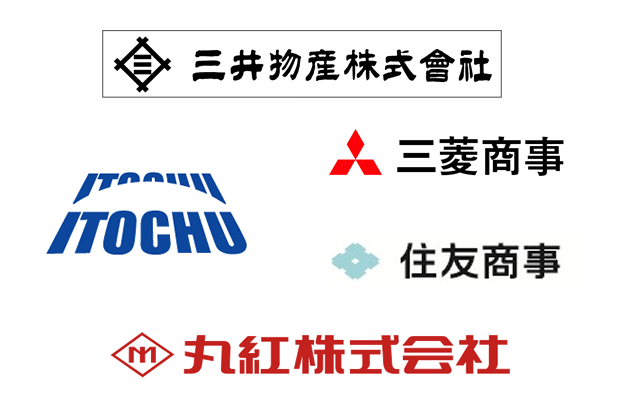Japanese shipping companies, trading house shipping divisions, and leasing firms are actively expanding their fleets through mergers and acquisitions (M&A). With the soaring costs of new ships, acquiring companies rather than placing individual orders has become a more cost-effective strategy for securing fleet capacity.
These companies are increasingly prioritizing the acquisition of entire businesses as a way to secure multiple vessels for their fleets. This approach is particularly attractive given the escalating prices of new ships. The companies being acquired typically include Japanese shipowners, energy companies, and mid-sized operators facing challenges in business succession. A common factor among these target companies is the need to invest in new vessels while grappling with rising costs due to the transition to new fuel technologies, which is forcing them to consider business consolidation.
(Text by Hirofumi Yamamoto)
Photo courtesy=Orix
■NYK invests in ENEOS Ocean subsidiary
One major deal in the industry is Nippon Yusen Kaisha’s (NYK Line) announcement in July 2024 that it would acquire an 80% stake in a new company established by ENEOS Ocean, a subsidiary of ENEOS, Japan’s one of the largest oil refiner. This new company will take over ENEOS Ocean’s non-crude oil shipping businesses, including its LPG (liquefied petroleum gas) carriers, chemical tankers, product tankers, and dry bulk vessels, bringing them under the NYK umbrella.
The new company, in which Nippon Yusen Kaisha (NYK Line) will hold an 80% stake, is set to operate approximately 50 vessels and take over 16 subsidiaries from ENEOS Ocean, including its Singapore-based shipping operations and ship management companies.
Takaya Soga, President of NYK Line, elaborated on the company’s strategy for securing its fleet in response to rising newbuild prices during a press conference on 5 August 2024, where the company’s consolidated financial results for the April-June quarter were discussed.
“Aside from owning ships ourselves or chartering them long-term, we have recently announced that ENEOS Ocean will establish a new company, in which NYK Line will acquire an 80% share. Effectively, by holding these shares, we will gain control of 80% of 49 vessels, excluding VLCCs (very large crude carriers) owned by ENEOS. This allows NYK Line to acquire high-quality vessels and expand our business scale and fleet capacity, independent of the current surge in newbuild prices.”

■Trading House Shipping Divisions Also Exploring M&A
Trading house shipping divisions are also seeking to secure vessels through mergers and acquisitions (M&A).
Traditionally, trading house shipping divisions have struggled to achieve the commonly targeted 10% return on equity (ROE) through their usual business of brokering new builds and secondhand ships. In recent years, they have shifted towards owning vessels themselves. For instance, in some years, they manage to meet their profit targets by acquiring competitive secondhand ships or by placing new orders.
However, a source within the shipping division noted, “Even if we sell off vessels during times of yen depreciation to post profits, the challenge remains as to what will be done in the following years. With newbuild prices skyrocketing as they are now, there is no guarantee that securing new orders or purchasing secondhand ships will always be successful, leaving us in a precarious position.”
In a move that reflects this trend, ORIX Corporation, Japan’s largest leasing company, announced in February 2024 that it had acquired all outstanding shares of Santoku Senpaku, a major Japanese shipowner based in Osaka, headed by President Junichi Taga. ORIX has taken over all of Santoku Senpaku’s 67 vessels, its ship management business, and all other operations. While the acquisition price was not disclosed, ORIX’s investment is estimated to be around ¥300 billion, based on the enterprise value including debt.
Santoku Senpaku, amidst a generational change in its leadership, sought new growth strategies and ultimately realized this major M&A deal with ORIX, which has over 50 years of experience in ship owning and leasing.
These M&A activities among shipping companies, trading houses, and leasing firms are expected to continue.
Some trading house shipping divisions are discreetly investigating potential M&A targets among Japanese shipowners and mid-sized shipping companies. Despite recent strong earnings driven by the weak yen, these mid-sized owners and operators face challenges. The costs associated with new builds are rising, driven not only by high prices but also by increasing environmental compliance and ship management costs. “As some overseas operators are exercising purchase options at the end of their charter contracts, we lost our ships. And as it also new building price is so high, we are in a situation where we cannot invest in newbuilds,” one mid-sized shipowner explained.
The challenges of business succession among Japanese shipowners have long been recognized. While some have managed to ensure a smooth transition by appointing successors while the current president is still active and by dispersing ship assets among related companies, others face difficulties due to a lack of successors and complications in assessing ship assets for inheritance tax purposes.
Even mid-sized operators under major corporate groups find it difficult to independently invest in environmentally friendly ships and are being forced to make strategic decisions about which businesses to focus on.
While many shipowners and mid-sized operators remain cautious about acquisitions by major shipping companies or trading houses, some industry observers, such as a shipping broker, suggest that “it wouldn’t be surprising to see a second or third Santoku Senpaku emerge.”
〆日本の海運会社、商社船舶部、リース会社はM&Aで船舶を拡大する動きを見せている。
■新造船価が高騰しているため、個別に新造船を発注するより、会社を買収する方が割安に船隊を確保できるメリットがある。
日本の海運会社、商社船舶部、リース会社はM&A(合併・買収)で船隊を拡充する動きをみせている。彼らは新造船価格が高騰しているため、個別案件よりも会社ごと買収することでロット(複数隻)を自社船隊として確保できる方法を優先させる見通しだ。買収される側の会社は事業承継に課題のある日本船主やエネルギー会社、中手オペレーター(運航船社)である。買収される側の会社に共通するのは新造船への投資が必要な半面、新燃料への対応などで投資額がかさみ、事業整理を迫られている点にある。
(Text by Hirofumi Yamamoto)
■NYKがENEOS オーシャンの子会社に出資
海運大手では日本郵船が2024年7月、石油元売り最大手ENEOSの海運事業会社、ENEOSオーシャンが原油タンカー事業以外の海運事業を分離して設立する新会社の株式80%を取得し、子会社化すると発表した。日本郵船はENEOSオーシャンのLPG(液化石油ガス)船、ケミカル船、プロダクト船、ドライバルク船を傘下に入れる。
日本郵船が80%出資する新会社は約50隻の船舶を運航し、ENEOSオーシャンの在シンガポールの運航会社や船舶管理会社など16社を引き継ぐ。
日本郵船の曽我貴也(Takaya Soga)社長は2024年8月5日に開催された2024年4―6月期連結決算会見で新造船価格の高騰に伴う船隊確保の方針について問われ次のように説明した。
「自分で船を持つ、長期用船をするということとは別に、先般発表したENEOS(オーシャン)が新規の会社を作り、日本郵船がそのうちの80%資本を持つ。株式を持つという形で実質的にはENEOSが保有しているVLCC(大型原油タンカー)以外の49隻の8割を持つことと同じことになる。現在の新造船価格の高騰とは別な形で、日本郵船が良質な性質を持つ船を取得し、われわれの事業規模を拡大する、船腹の規模を拡大するといったやり方もある」。
■商社船舶部も模索
商社船舶部もM&Aで自社船の確保を模索する。
